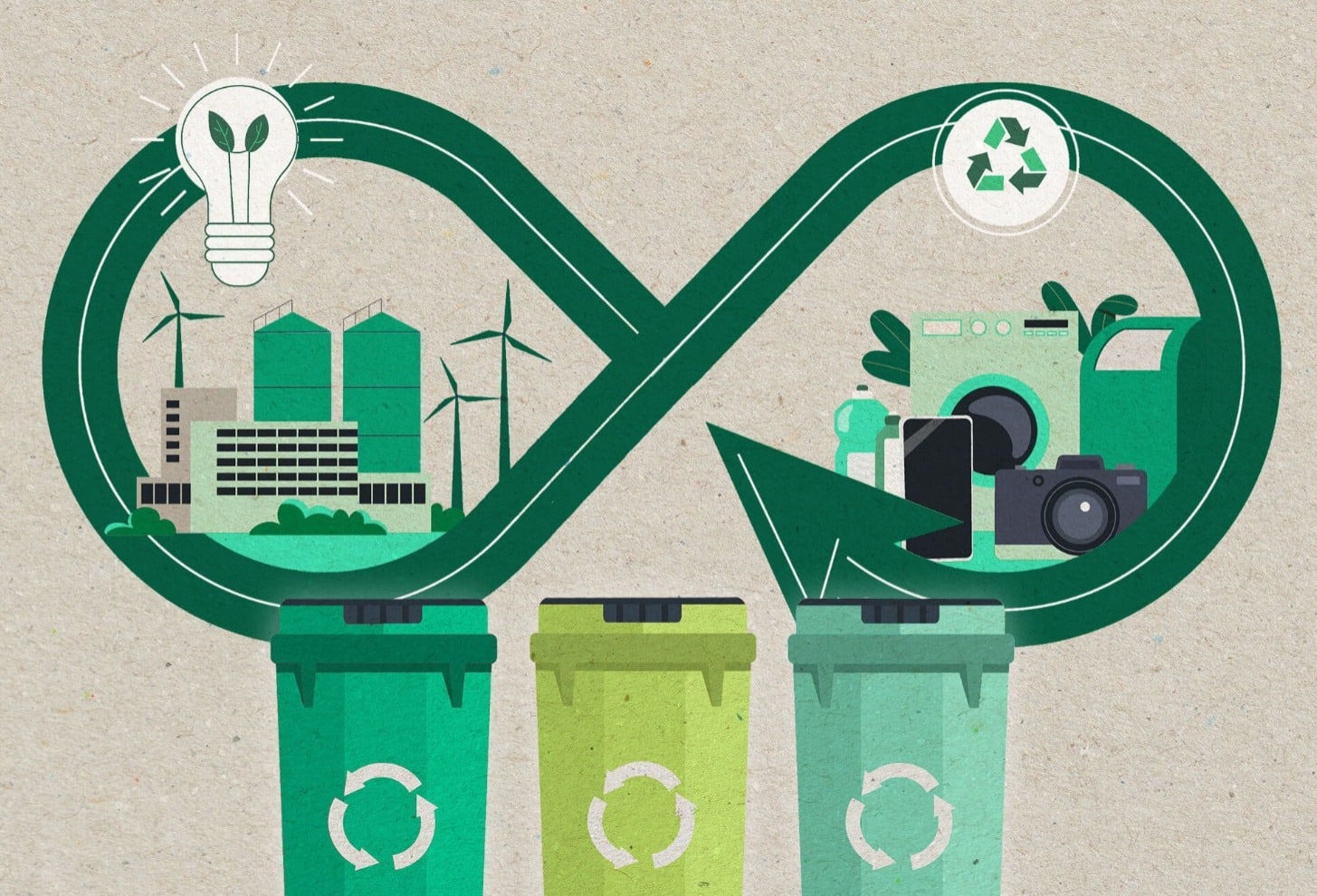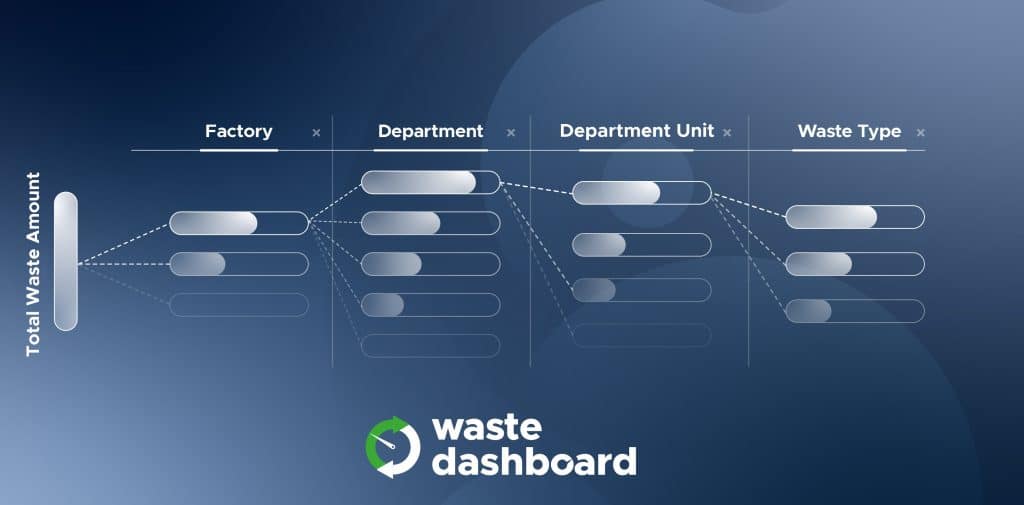Waste & material traceability solution for sustainable facilities

In today’s interconnected global economy, supply chain traceability has become essential for organizations seeking sustainability, compliance, and resilience. As consumers, investors, and regulators demand greater transparency into product origins, manufacturing processes, and environmental impacts, companies must develop systems to track materials and products throughout their lifecycle.
This visibility now extends beyond traditional supply chain management into waste streams, material recovery, and circular economy initiatives that are increasingly important for competitive advantage and regulatory compliance.
Traceability has evolved from a “nice-to-have” to a business imperative driven by regulation, consumer demand, and investor pressure.
Regulations such as the EU Corporate Sustainability Reporting Directive (CSRD) and the proposed Corporate Sustainability Due Diligence Directive (CSDDD) require detailed reporting on supply chain environmental and social impacts. Companies must track and disclose information across the full value chain, including suppliers and downstream waste.
Consumers now expect brands to be transparent, with over 70% saying they will pay more for environmentally responsible products. This demand covers not just product origin, but also end-of-life handling and recycling. Companies that meet this demand strengthen brand trust and customer loyalty.
Investor scrutiny adds further momentum. ESG criteria are now central to investment decisions, and companies with robust traceability systems demonstrate lower risk profiles, improved resilience, and better access to sustainable financing.
At the same time, global supply chains are increasingly complex, involving dozens of suppliers and logistics networks. Traditional tracking methods can’t keep up with the level of visibility required for today’s compliance and operational needs.
A comprehensive traceability system must integrate data sources and processes throughout the entire product lifecycle. This includes:
Organizations face multiple hurdles when rolling out comprehensive traceability systems. Data fragmentation is common, with information spread across suppliers and systems. Smaller suppliers may lack the tools for detailed reporting, requiring support or incentives to participate.
Technology integration also poses challenges, as legacy systems may not support modern traceability requirements. Balancing new solutions with existing processes is critical to avoid disruption.
Cost is another barrier, though often outweighed by long-term efficiency gains and risk reduction. Meanwhile, data accuracy and quality are vital—traceability is only as strong as the information feeding into it.
The benefits of robust traceability extend far beyond compliance. Companies report gains in efficiency, quality, customer satisfaction, and resilience.
Risk mitigation is immediate: disruptions, regulatory changes, or quality issues can be identified and addressed quickly. This is increasingly critical in today’s volatile landscape shaped by climate events, geopolitical tensions, and pandemic disruptions.
Operational efficiency also improves. Companies can reduce waste, optimize inventory, and allocate resources more effectively. Many achieve a return on investment within 12–24 months.
Sustainability performance gains are another driver. Traceability data allows organizations to cut environmental impacts, improve recycling rates, and implement circular practices that align with both regulatory and consumer expectations.
Finally, new revenue streams are possible. By tracking material and waste flows, companies can identify opportunities for recovery and create new products or services, turning compliance into value creation.

Evreka’s WasteDashboard provides the digital backbone for material and waste traceability across supply chains. It consolidates data from facilities, departments, and waste streams, enabling companies to achieve full lifecycle visibility.
With WasteDashboard, organizations can:
This approach helps companies transform fragmented data into strategic insights that drive both compliance and performance.
Supply chain traceability delivers the most value when it connects directly to broader sustainability strategies. WasteDashboard helps organizations align material and waste tracking with ESG frameworks such as CSRD and Scope 3 reporting, while supporting circular economy objectives. By consolidating data across suppliers, facilities, and logistics, companies can demonstrate measurable progress toward sustainability targets while optimizing operations.
WasteDashboard’s strength lies in its data consolidation, variance analysis, audit-ready reporting, and integration capabilities. These features ensure that material and waste flows are tracked accurately across the entire lifecycle, providing organizations with reliable insights for both compliance and operational decision-making.
Looking ahead, evolving requirements such as the EU Digital Product Passport (DPP) and Extended Producer Responsibility (EPR) will demand even more detailed tracking of materials and end-of-life processes. With its flexible architecture and regulatory alignment, WasteDashboard positions organizations to meet these demands without costly overhauls.
Supply chain traceability has become essential for organizations seeking to ensure sustainability, compliance, and operational resilience in today’s complex business environment. The ability to track materials and waste flows throughout the entire supply chain provides competitive advantages while supporting regulatory compliance and stakeholder expectations.
WasteDashboard provides the comprehensive material and waste traceability capabilities needed to build transparent, sustainable supply chains. The platform’s ability to consolidate complex data into clear, actionable insights enables organizations to move beyond basic tracking to strategic supply chain optimization.
Explore WasteDashboard to discover how comprehensive material traceability can enhance your supply chain transparency and sustainability performance. For more information on how WasteDashboard turns waste reporting into actionable insights, download our “WasteDashboard Sample Insights Report” and discover how organizations can track inbound and outbound flows, pinpoint high-volume sources, detect mismatches, and generate audit-ready compliance reports—all through clear, interactive dashboards.
For organizations seeking integrated supply chain and sustainability solutions, request a demo to see how Evreka’s comprehensive platform can support your complete traceability strategy.